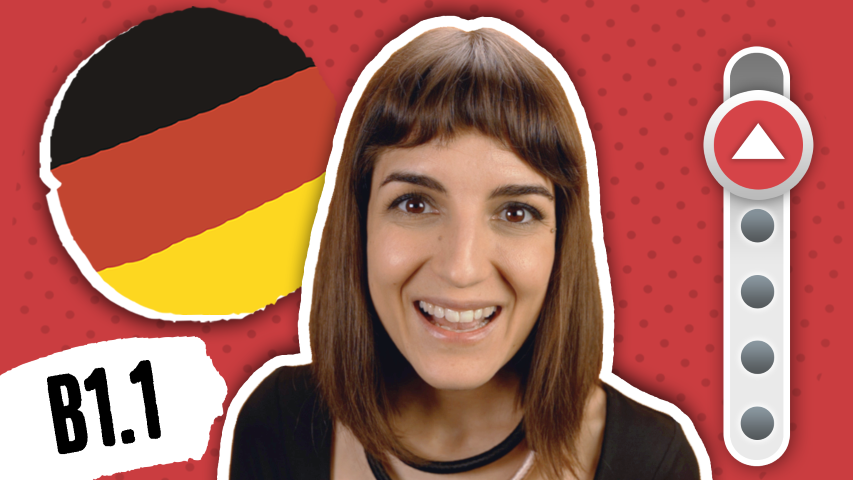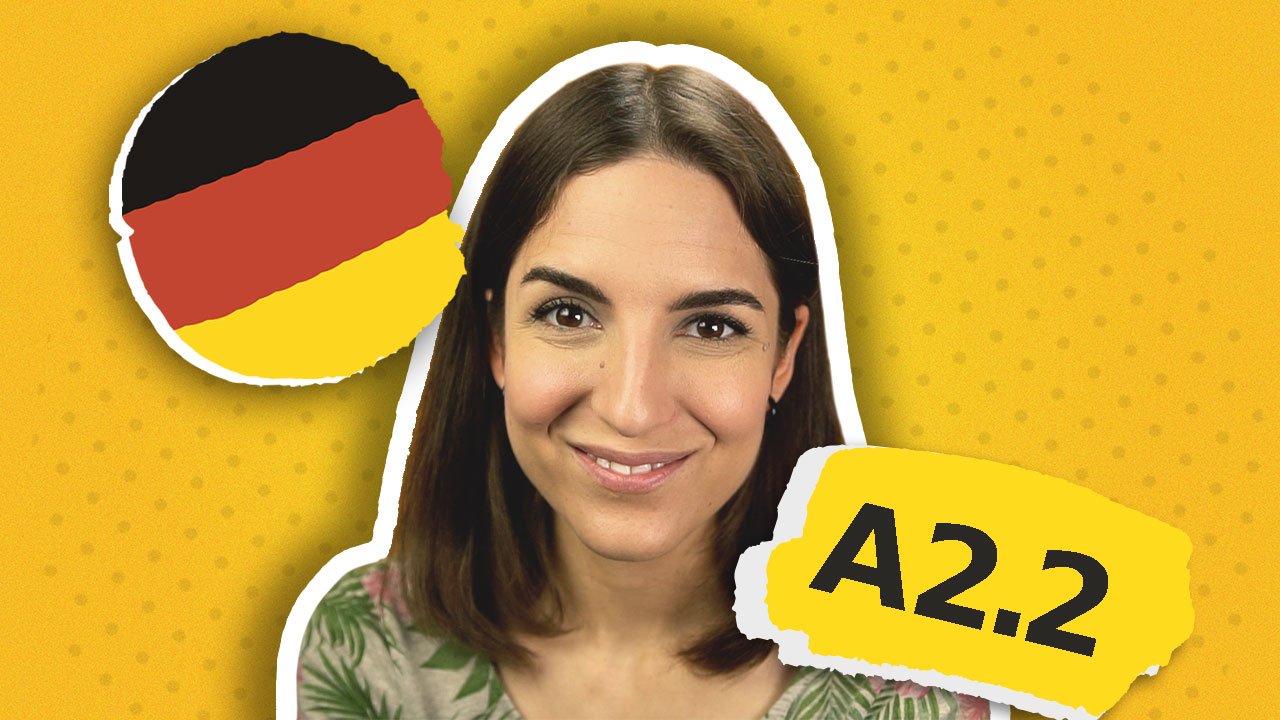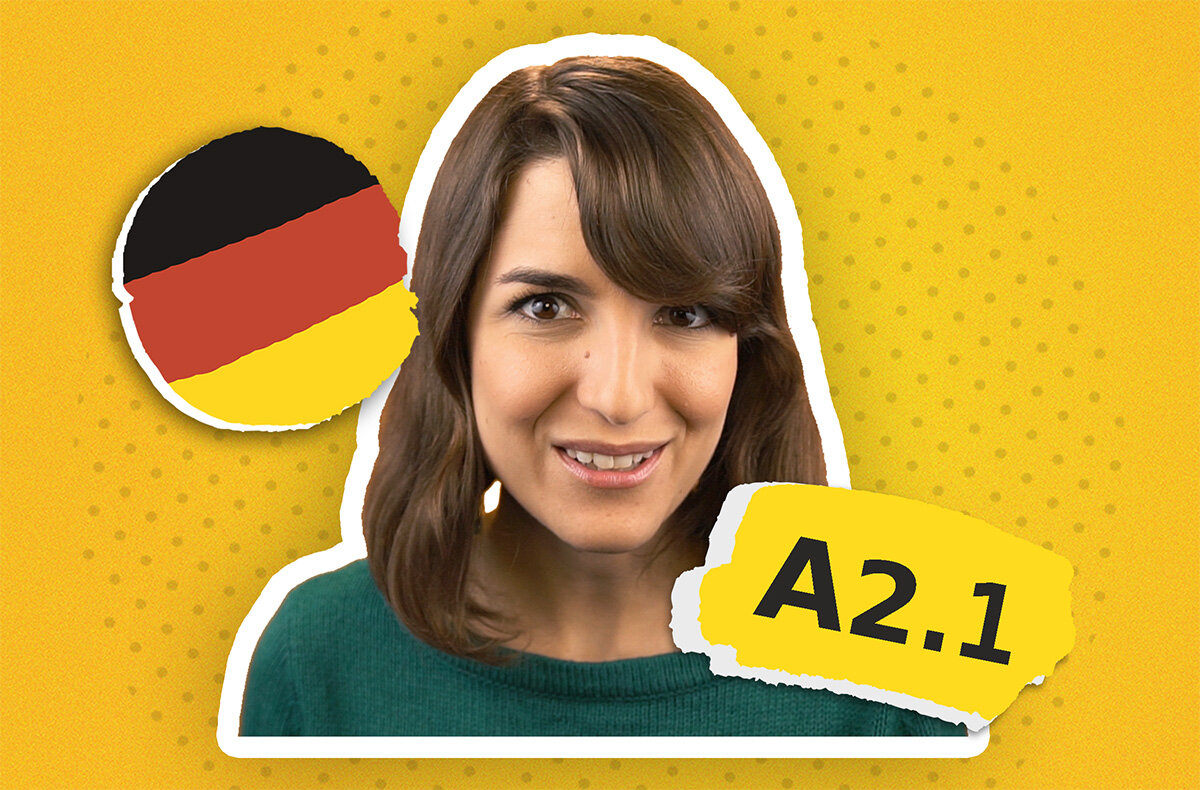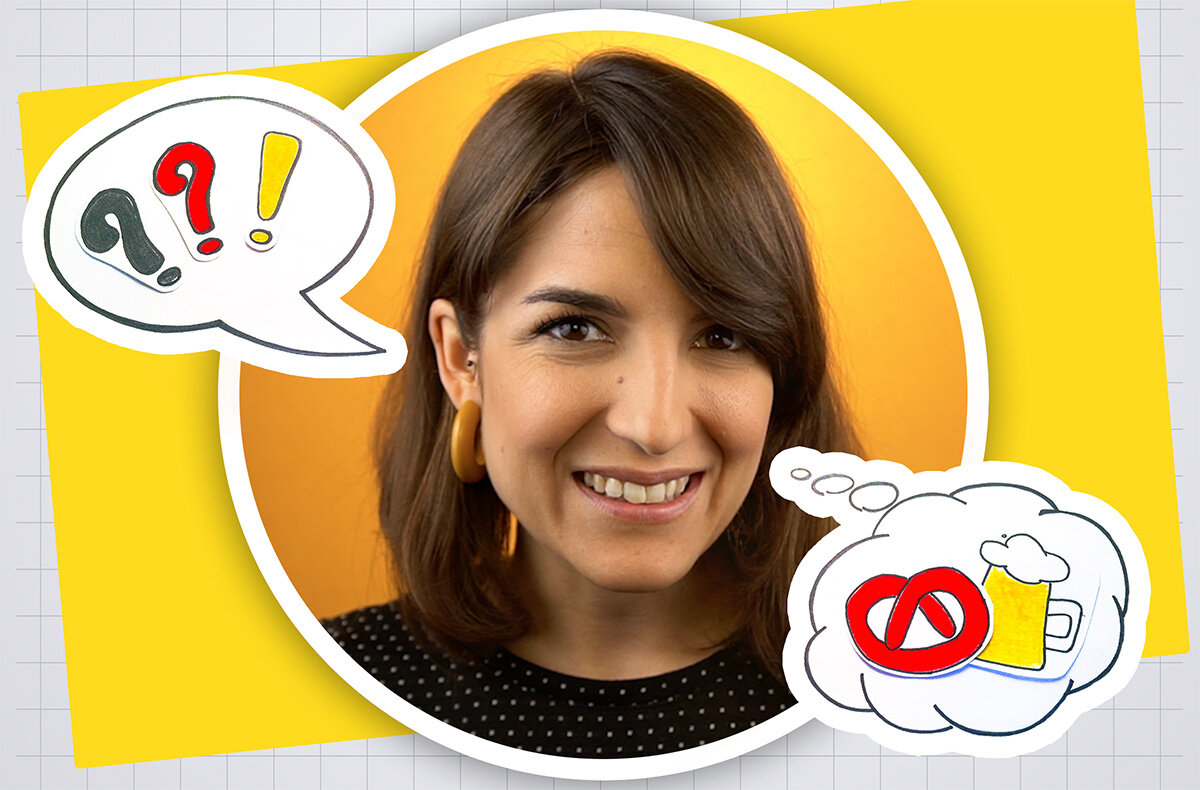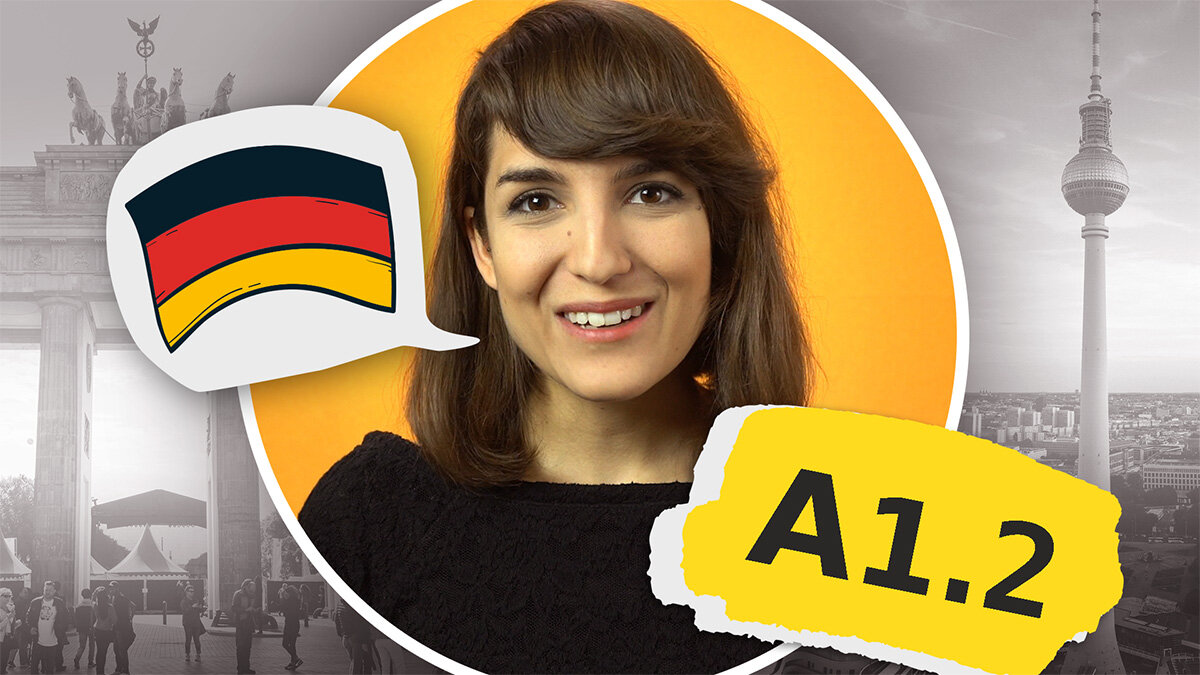Tips for formal and informal German conversation
Alan has been a passionate book reader for years
His grandchildren have bought him a laptop for his birthday, so he could take part in online book discussions. Although a little skeptical at first, Alan has come to spend hours and hours discussing the books he reads with other users on the website. One day, he met a fellow book lover, Mareike from Germany. They started chatting every day and soon fell in love. They are now making plans for Alan’s visit to Germany this October. The only problem is, Alan doesn’t speak German that well. He has therefore decided to take part in online German course to practice conversation.
In this lesson, we go over the things you’ve learned in the previous lessons and see how the sentences from previous lessons look when applied in conversations. In the end, you can check out how Alan’s visit to Mareike went!
First conversation: Informal conversation
As you already know, German has different rules depending on who you are talking to. In such a conversation we can use informal forms of greetings and address one another. We use informal conversation forms when talking to our friends and family.
Younger people also use informal forms of conversation to communicate with one another, even though they perhaps (like in our example) don’t know each other that well. Let’s observe the sentences you’ve learned in this example of a conversation between two students!
🇩🇪 - Hallo! Wie geht’s?
🇬🇧 - Hello, how are you?
🇩🇪 - Hallo! Mir geht es gut, danke! Ich heiße Lukas! Und du? Wie heißt du?🇬🇧 - Hello! I’m doing well, thanks! My name is Lukas! And you? What is your name?
🇩🇪 - Ich heiße Michael! Du bist der neue Schüler, richtig? Woher kommst du?🇬🇧 - My name is Michael! You’re the new student, right? Where do you come from?
🇩🇪 - Ja, ich bin neu hier. Ich komme aus Düsseldorf.🇬🇧 - Yes, I’m new here. I am from Düsseldorf.
🇩🇪 - Düsseldorf! Eine wunderschöne Stadt!🇬🇧 - Düsseldorf! A beautiful city!
🇩🇪 - Ja, eine sehr schöne Stadt! Michael, wer ist der Mann da drüben?🇬🇧 - Yes, a very nice town! Michael, who is that man over there?
🇩🇪 - Aha, das ist unser Lehrer, Herr Müller.🇬🇧 - Aha, that is our teacher, Mr. Müller.
🇩🇪 - Danke! Du bist sehr nett! Tschüss!🇬🇧 - Thanks! You are very kind! Bye!
🇩🇪 - Bitte! Tschüss!🇬🇧 - You’re welcome! Bye!
Second conversation: Formal conversation
Let’s now see how these sentences look when applied in a formal conversation. We use formal conversation forms in a professional setting or with people we do not know very well. In this example, we see a conversation between a restaurant owner and a local baker.
🇩🇪 - Guten Morgen! Ich heiße Thomas Schiller. Sind Sie Frau Heinz?
🇬🇧 - Good morning! My name is Thomas Schiller. Are you Miss Heinz?
🇩🇪 - Ja, ich bin Monika Heinz. Wie kann ich Ihnen helfen?🇬🇧 - Yes, I am Monika Heinz. How can I help you?
🇩🇪 - Oh, ich bin der Bäcker aus der Bäckerei „Thomas“. Und hier sind Ihre Torten! ( Er gibt ihr die Torten.)🇬🇧 - Oh, I am the baker from the bakery “Thomas”. And here are your cakes! (He gives her the cakes.)
🇩🇪 - Vielen Dank, Herr Schiller! Ich finde die Torten einfach wunderschön! Sie kosten insgesamt vierzig Euro, richtig?🇬🇧 - Thank you a lot, Mr. Schiller! I find the cakes simply wonderful! They cost altogether forty euro, right?
🇩🇪 - Bitte! Und ja, die Torten kosten insgesamt vierzig Euro.🇬🇧 - You’re welcome! And yes, the cakes altogehter cost forty euro.
🇩🇪 - Hier, bitte! (Sie gibt ihm das Geld.)🇬🇧 - Here! (She gives him the money.)
🇩🇪 - Dankeschön! Auf Wiedersehen!🇬🇧 -Thank you very much! Goodbye!
🇩🇪 - Auf Wiedersehen!🇬🇧 - Goodbye!
What we’ve learned today?
The way you talk in German depends on the setting. If you’re talking to friends or family, you use informal conversational forms. If you’re talking to someone you have a strictly professional relationship with or you don’t know them that well, it is considered polite to use formal conversational forms.
In the table below you can see the list of words which appeared in this lesson and the appropriate translation (some words have multiple meaning, which you can find in the dictionary, but for starters, you can learn them from the table below). Some irregular verbs don’t appear in the table below, as they might be too complicated for beginners.
🇩🇪 Guten Morgen! → Good morning!
🇩🇪 Hallo! → Hello!
🇩🇪 Wie geht’s? → How are you? (informal)
🇩🇪 gut → good, well
🇩🇪 Danke! → Thank you!
🇩🇪 heißen → to be called (to be named)
🇩🇪 wie → how
🇩🇪 neu → new
🇩🇪 Schüler, der → male student
🇩🇪 richtig → correct, right
🇩🇪 woher → where from
🇩🇪 kommen → to come
🇩🇪 wunderschön → wonderful, beautiful
🇩🇪 Stadt, die → city, town
🇩🇪 sehr → very
🇩🇪 schön → pretty, nice
🇩🇪 wer → who
🇩🇪 Mann, der → man
🇩🇪 da drüben → over there
🇩🇪 Lehrer, der → male teacher
🇩🇪 Herr, der → mister (Mr.)
🇩🇪 nett → nice
🇩🇪 Bitte! → You’re welcome!
🇩🇪 Tschüss! → Bye! (informal)
🇩🇪 Guten Morgen! → Good morning!
🇩🇪 Frau, die → Miss
🇩🇪 helfen → help
🇩🇪 Bäcker, der → male baker
🇩🇪 Bäckerei, die → bakery
🇩🇪 hier → here
🇩🇪 Torte, die → cake
🇩🇪 Vielen Dank! → Thank you very much!
🇩🇪 finden → find
🇩🇪 einfach → simply
🇩🇪 insgesamt → altogether
🇩🇪 kosten → to cost
🇩🇪 vierzig → forty
🇩🇪 Geld, das → money
🇩🇪 Aufwiedersehen! → Goodbye!
Test your knowledge
Test your knowledge from previous lessons and see what you’ve learned in this one!
1.) Fill in the missing words!
- a) ____________ Morgen!
- b) ____________ Dank, Frau Schmidt!
- c) ____________ kommst du?
- d) ____________ geht’s?
- e) ____________ kann ich Ihnen helfen?
- f) Ich ____________ die Torte sehr schön!
2.) Which of the following doesn’t belong to a formal conversation?
- a) Sind Sie Herr Schiller?
- b) Danke, Sie sind sehr nett!
- c) Woher kommen Sie?
- d) Bist du der neue Lehrer?
3.) Connect the right sentence with the correct translation!
- a) Guten Abend!
- b) Tschüss!
- c) Wer ist der Mann da drüben?
- d) Woher kommst du?
- e) Berlin ist eine wunderschöne Stadt.
- f) Wie kann ich Ihnen helfen?
- g) Er ist der neue Schüler.
- h) Die Torten kosten insgesamt vierzig Euro.
- i) Sie gibt ihm das Geld.
- j) Dankeschön!
- A) Bye!
- B) Berlin is a beautiful city.
- C) Good morning!
- D) Thank you very much!
- E) She gives him the money.
- F) Where do you come from?
- G) Who is that man over there?
- H) The cakes cost altogether forty euro.
- I) He ist he new student.
- J) How can I help you?
4.) Choose the correct answer: Ich ___________ Monika.
- a) heißt
- b) kosten
- c) heiße
- d) heißen
- e) du
Here are the correct answers, check if you got them right!
1.) a) Guten b) Vielen c) Woher d) Wie e) Wie f) finde
2.) d
3.) a) C b) A c) G d) F e) B f) J g) I h) H i) E j) D
4.) c
Now, let’s see how Alan’s meeting with Marieke went!
Alan’s practice paid off! When he met Mareike and her family, he was able to talk to them and ask them questions in German. However, when they tried to help him with his luggage, they were very surprised to find out that it was impossibly heavy. They asked him what was the reason for that, but Alan unfortunately couldn’t remember the exact German words to explain it to them. Instead, he just opened it and dozens of books fell out. Mareike was especially pleasantly surprised, as she had now a lot of new books to read. Now that he’s in Germany, Alan and Mareike can discuss books and criticize film adaptations of their favourite books in person with a glass of wine. Alan, of course, didn’t forget to take a nice photo with Mareike to send to his grandchildren who made this love story possible in the first place!
You may also be interested in taking one of our courses



